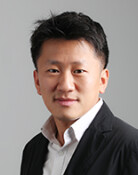Koreas unique spring semester requires to change
Koreas unique spring semester requires to change
Posted December. 23, 2014 07:47,
The government plans to introduce fall semester system, which starts a new semester from September, to primary schools, secondary schools, and universities. By introducing the autumn semester system established as an international standard, the government aims to get rid of barriers in exchange of students in and out of Korea, and deal with decreasing population of school-age children. The Ministry of Education plans to start gathering public opinions from the next year and will decide whether or not to introduce the system until 2016.
It is significant that the education area of the governments economic policy implementation direction for 2015 includes reform of the academic term system. In 1997 and 2007, the government tried to introduce the fall semester system. But the attempt came to nothing due to strong oppositions concerning enormous cost and confusion. Among the OECD member countries except for Australia located in the southern hemisphere, only Korea and Japan adopt a spring semester system. Recently, Japan is considering whether to adopt the fall semester system. The current academic term system, where an academic year starts in spring, was introduced during Japanese colonial era. After gaining independence, schools in Korea had run the fall semester system (a new semester began in September) for 4 years since 1946, but it didnt last long and shortly restored to the former system. Since Korea sticks to its unique spring semester, when students going out of Korea to study or vice versa, the timing to start a new academic year is different from other nations and inconveniences are caused.
In case of other countries, students have 1-2 weeks of short vacation in winter when it is too cold to have outdoor activities and 2-3 months of long vacation in summer. If students are given with a long vacation, which is not divided into summer and winter, they can enjoy longer field trips or more frequent outdoor activities in the nature, or they can utilize the long vacation as an opportunity to have various experiences such as volunteer services or internship. As seen in Japans plan to attract 300,000 foreign students by 2020, many nations around the globe do their best to attract outstanding manpower regardless of nationality. Introduction of fall semester system will help domestic universities enhance their international competitiveness. According to statistics of the Education Ministry, the number of foreign students studying in Korea has increased from 12,314 in 2003 to 85,923 in 2013. Among them, Chinese students account for 50,343. Compared to prestige universities in other nations, where the ratio of foreign students surpasses 20 %, it is a long way to go.
Many difficulties are expected to change curriculum and college entrance examination system according to the semester system change. However, with lax attitude of "why do we have to change a familiar system into a Western style," Korea will be left as an isolated nation in the global era. Social costs can be minimized by reaching a consensus through sufficient and proactive discussion over education system change. To secure international competitiveness in education, it is required to positively review introduction of flexible semester system.
Headline News
- Israel prepares for retaliation against Iran
- Samsung reclaims top spot, surpassing Apple in smartphone market
- 77% of Koreans in 20s and 30s are 'Kangaroo Tribe' due to job crisis
- KBO referees embroiled in controversy over ABS decision concealment
- Inflation, oil price surge put double shock on global economy






